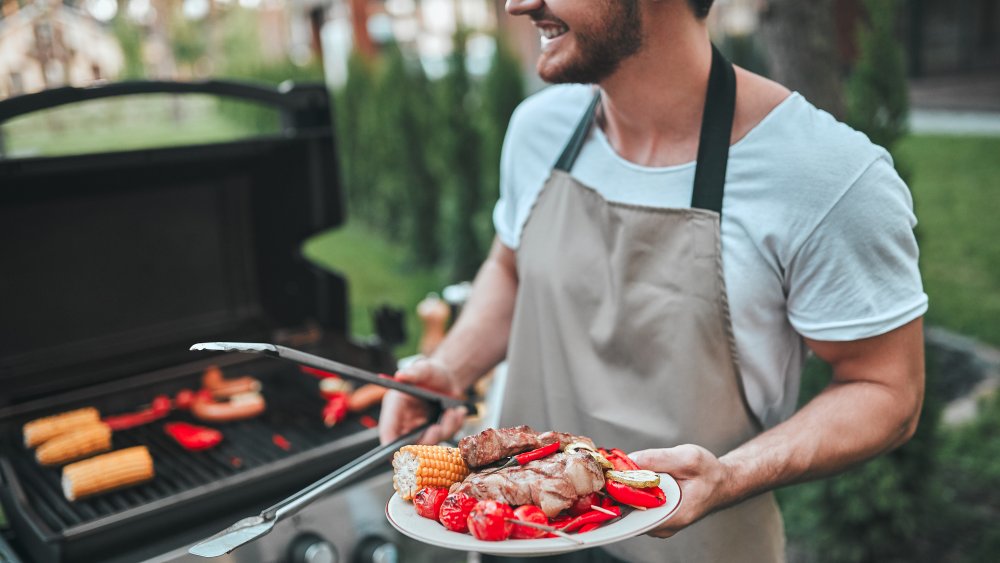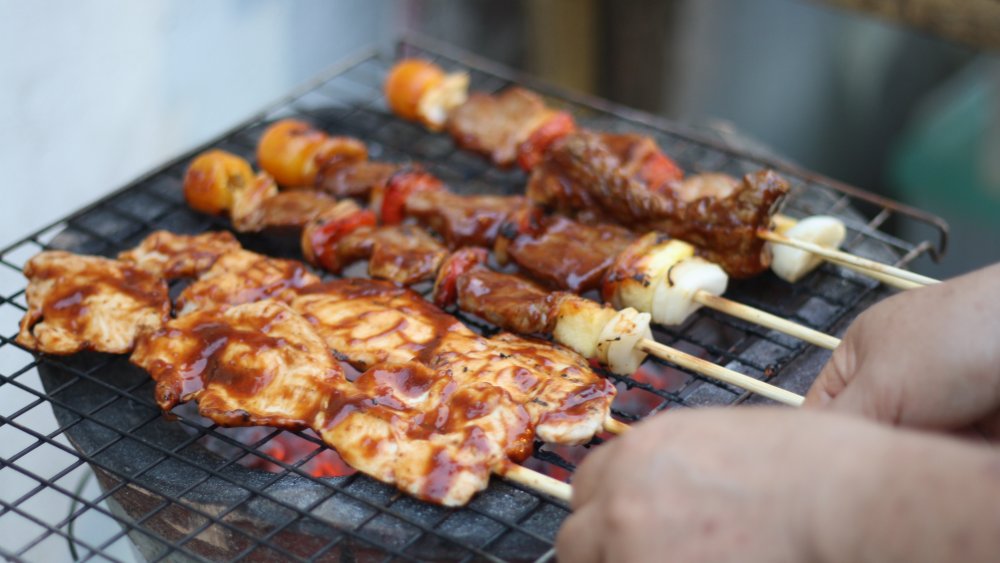Pit Master Breaks Down The Biggest Mistake You Make When You BBQ
If you've got a grill, a backyard, some juicy cuts of meat, and a sauce or a rub, you've got all you need for the kind of mouth-watering barbecue that will make the neighbors jealous–or, at the very least, knocking on your door with a six-pack, a strawberry pie, and hopeful look in their eyes. Let them in! Put on some chill background music, toss the bottle opener around and suddenly you're living your best BBQ ever - plus, you've won the gratitude of the people who can help jump your car the next time your battery dies.
Unless your meat tastes like it didn't survive an arson attempt. Terrible-tasting grub is a surefire way to shut your party down. Not all of us are born grillmasters, unfortunately, and in fact, we may have inherited some bad BBQ habits from mom or dad, or whoever it was who first handed us the metal spatula.
In an exclusive interview with Mashed, Derrick Walker, owner of Smoke-a-Holics BBQ in Fort Worth, Texas, explained why your cookout might be a hot mess.
Too much lighter fluid will destroy your BBQ
If your BBQ tastes bad, Walker is betting it's because you were a little too free-flowing with that big container of lighter fluid. You're trying to ignite your grill – not burn down the house. "A little goes a long way, if you have to use it at all," Walker said. "I prefer a chimney to start charcoal, which you can pick up at any hardware store for under $10."
If you don't go near lighter fluid, either, another reason why your meat tastes bad is because you go through Reynolds Wrap like it's toilet paper. "The second mistake I see is placing foil over your grates during the cook," Walker explained. "Don't do that! Learn to manage a fire instead. Start with less coal and slowly add unlit coal to the lit coal as needed. You'll have a better looking product thanks to the grill marks that will form and more color."
An added advantage to not using foil, Walker added, is "the meat will be more flavorful from the drippings that hit the coal and the smoke penetration if you're using wood chips or chunks," he said.

